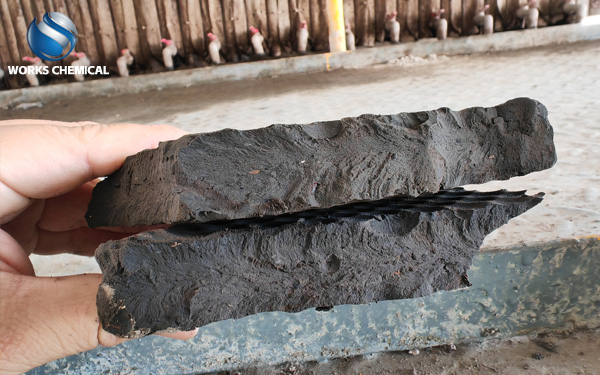
When selecting a sludge conditioner, it is necessary to consider the nature of the sludge, the treatment requirements and the characteristics of the conditioner. The following are some suggestions for selecting a sludge conditioner for the plate and frame filter press according to the information in the reference article:

1. Inorganic conditioner
Features: Inorganic conditioning agents such as lime, aluminum hydroxide, iron hydroxide, etc., by neutralizing the organic acids in the sludge and adjusting the pH value of the sludge to improve the dewatering performance of the sludge. Its advantages are low cost and good dehydration effect.
Application:
When the content of organic matter in the sludge is high and the pH value is low, the inorganic conditioner can effectively neutralize the organic acid in the sludge and improve the dewatering performance of the sludge.
The flocculant formed by the inorganic conditioner has fine particles but high strength, which is suitable for the plate and frame filter press to dehydrate the sludge.
Note:
The amount of inorganic conditioner added may be large, and attention should be paid to controlling the added amount to avoid increasing the amount of sludge after treatment.
Inorganic conditioning agents may clog the filter cloth during the dehydration process, and the filter cloth needs to be cleaned regularly.
2. Organic conditioner
Features: Organic conditioners such as cationic polyacrylamide (CPAM), anionic polyacrylamide (APAM), etc., through adsorption and neutralization of organic matter in the sludge, thereby improving the dewatering performance of the sludge. Compared with inorganic conditioner, the amount of organic conditioner added is smaller, and the effect of sludge dewatering is significantly improved.
Application:
When the content of organic matter in the sludge is high and the dehydration efficiency is high, the organic conditioner is a better choice.
The floc formed by the organic conditioner is thick but the strength is low, and once the floc is destroyed, it is not easy to restore to the original state. Therefore, when using the plate and frame filter press to dehydrate the sludge, it is necessary to pay attention to the operation to avoid damaging the floc.
Note:
The cost of organic conditioners is relatively high, and it is necessary to consider the cost and treatment effect comprehensively.
The selection of organic conditioners needs to take into account the nature and treatment requirements of the sludge to ensure the best dewatering effect.
3. Compound the conditioner
When the use of inorganic or organic conditioners alone is difficult to achieve the ideal conditioning effect, the combination of inorganic and organic conditioners can be considered. For example, the combination of lime and ferric chloride can not only adjust the pH value, but also increase the porosity of the sludge and promote the separation of mud and water.
Sum up
When selecting the sludge conditioner, it is necessary to comprehensively consider the nature of the sludge, the treatment requirements and the characteristics of the conditioner. The inorganic conditioner is suitable for improving the pH value and dewatering performance of the sludge, while the organic conditioner has better dewatering effect on the sludge with higher organic matter content.